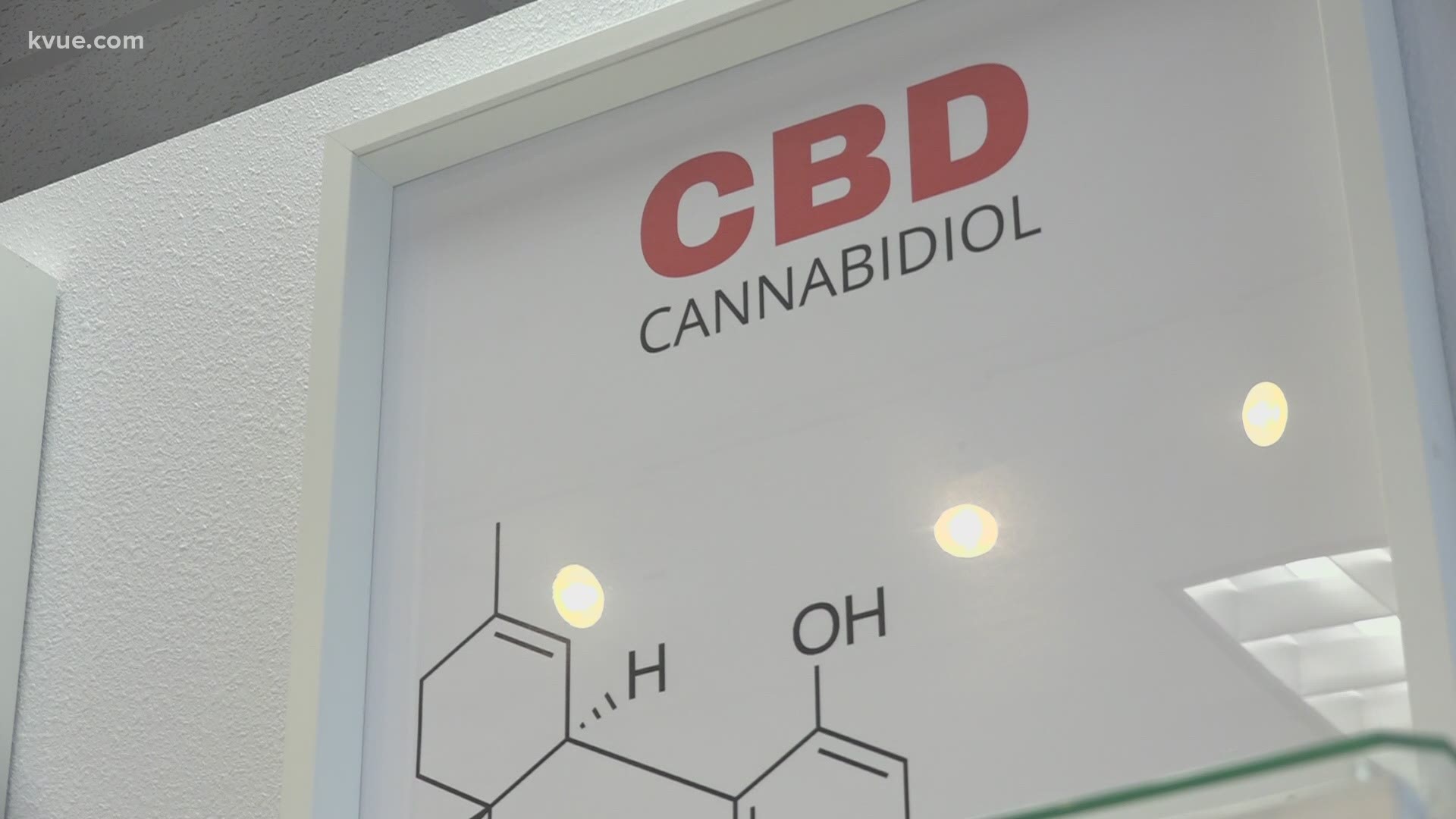AUSTIN, Texas — The COVID-19 pandemic has put a strain on mental health. Dr. Mike Telch is taking the opportunity to study the effects of CBD on anxiety brought on by the pandemic.
Telch launched a nationwide study late last year looking for stressed-out participants to take CBD oil for 28 days. Participants would take copious notes before and after ingesting the oil and document how they are feeling. Telch wants to create usable data to demonstrate the effects of the drug.
"People who are suffering from COVID-19-heightened emotional stress because of COVID-19, to what extent would CBD actually be helpful?" Telch said. "There's a lot of hype about CBD, but not that much science yet. The science is really restricted to just a few areas."
Restart CBD co-owner Shayda Torabi agrees. She cannot prescribe the drug to any consumer, only give her personal experience or share the stories of others.
"The way that we kind of operate is really trying to get that consumer again to be comfortable with that journey of – just because you've heard about smoking cannabis doesn't mean you have to smoke," Torabi said.
She encourages her customers to be "canna-curious," a play on words because CBD comes from cannabis, but does not get a user high.
RELATED: Keep Austin Local: RESTART CBD
"We like to educate consumers on everything from what is the right consumption method to what is the right amount of milligrams," Torabi said. "Ultimately, knowing that it's not a one-size-fits-all – everybody's body and biochemistry is going to respond differently to the different cannabinoids."
In the parking lot of Westgate Lanes in South Austin, Roger Pilney opened Radix Coffee House last year. Pilney takes CBD regularly to curb the effects of his post-traumatic stress disorder.
"I have PTSD from coming across friends ... who committed suicide and cleaning those up," Pilney said.
A recovering alcoholic who's been sober for 20 years, Pilney said he attempted suicide six times before finding CBD: crediting the drug for saving his life in many ways.
"People like me are desperate," Pilney said.
His truck-turned-coffee house serves hot drinks, with an option to add CBD to almost anything. Customers can also buy a "joint" of CBD if they prefer smoking, or a CBD treat to calm their dog.
Both Pilney and Torabi run into the same complication though: what they have found through their CBD experience has yet to be recognized by government studies and data. Telch wants to change that.
"CBD has certain brain targets and the targets that actually get activated when you take CBD, one of the common denominators is something we call stress reactivity," Telch said. "We know that stress reactivity is implicated in depression and anxiety and post-traumatic stress disorder and sleep disturbance and all sorts of problems, emotional problems. Well, CBD, just because of its very its biological makeup, seems to act on the brain to dampen or reduce stress reactivity."
Telch's staff is conducting a clinical randomized, or "double-blind," study, meaning neither the participant nor the researchers know if the participant is receiving broad spectrum CBD, CBD isolate or a placebo. According to Telch, it makes the study more stringent. As participants finish their 28-day supply of syringes, used similar to droppers rather than injecting CBD straight into the body, those running the study will determine who received which iteration.
Telch anticipates the entire study will take about a year or so to complete as he is still looking for people to participate. If you would like to apply to participate, you can do so here. Telch is looking to include 160 people total.
PEOPLE ARE ALSO READING:

